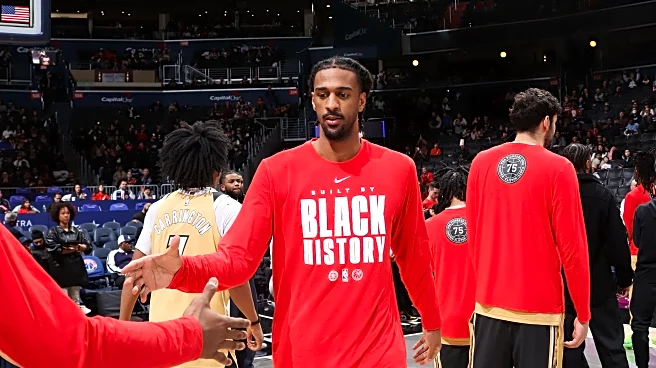What's Happening?
Beyond Meat experienced a dramatic increase in its stock price, surging 146% on Tuesday, following its addition to the Roundhill Meme Stock ETF. This ETF focuses on stocks that gain popularity through
retail speculation and social media influence. Beyond Meat's stock had already risen 127% on Monday after the announcement. Additionally, Beyond Meat revealed a new distribution deal with Walmart, expanding its presence in more stores across the U.S. The ETF addition triggered a short squeeze, forcing investors who bet against the stock to cover their positions, as 63% of the shares available for trading were sold short.
Why It's Important?
The surge in Beyond Meat's stock price underscores the impact of meme stock dynamics on market behavior, where retail investor sentiment and social media influence can drive significant price movements. The Walmart distribution deal further enhances Beyond Meat's market position, potentially increasing its revenue and brand visibility. However, the volatility associated with meme stocks poses risks, as rapid price changes can lead to instability and affect investor confidence. The situation highlights the evolving landscape of stock trading, where traditional metrics are increasingly challenged by speculative forces.
What's Next?
Beyond Meat's stock performance will likely continue to be volatile as retail investors and market trends influence its valuation. The company's strategic partnership with Walmart may lead to increased sales and market penetration, potentially attracting more institutional investors. The broader implications of meme stock trading may prompt regulatory scrutiny and discussions about market stability and investor protection. As the meme stock phenomenon evolves, companies like Beyond Meat may need to adapt their strategies to navigate the challenges and opportunities presented by this trend.
Beyond the Headlines
The rise of meme stocks reflects a cultural shift in investment practices, where social media and retail investor sentiment play a significant role in market dynamics. This trend challenges traditional investment models and raises questions about the ethical and legal implications of speculative trading. The impact on market stability and investor protection may lead to regulatory discussions and potential changes in financial market oversight.











